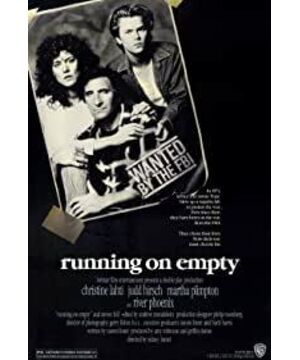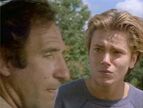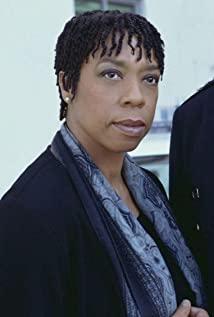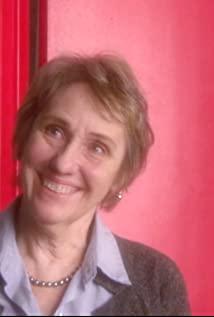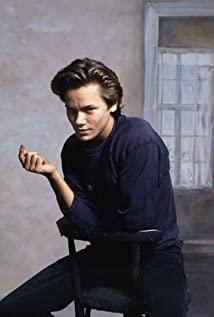Lumet's 1988 work "No Limits Wanted" is a complete departure from his previous work. In his previous series of works such as "Afternoon on a Hot Day" and "The TV Station", Rumet always had a deep insight into the tendency of violence and ignorance in American society. He focuses on the key role of the media as an "extension of the human body" in creating a wave of madness, and uses mad protagonists to insinuate the proliferation of nihilistic values. However, "No Limits Wanted" could not find the shadow of Rumet's previous works. Instead, it echoed the trend of returning to the family in mainstream American movies at that time, and showed the transformation of the United States from rebellious to conservative through the escape journey of a pair of activists.
The road imagery that appears in the film's opening credits hints at the theme of "escape," and Beethoven's score has a certain tenderness. Arthur and Anne planted a bomb in a military laboratory to hinder the Vietnam War in 1971, but accidentally injured a janitor and blinded him. Since then, they took their two sons and changed their names to avoid the FBI. hunt down. If it had been before, this theme would have been made into a road crime film like "Bonnie and Clyde", but Lumet made a false shot. After the road at the beginning appeared, it was followed by an escape sequence, but The entire plot after that is almost a transition between several family members, and escape has become a completely ignored theme, and the next time to prepare to escape is at the end of the film. In the escape sequence at the beginning of the film, the eldest son Danny (River Phoenix) is keenly aware of being followed, and then closely cooperates with his younger brother to escape with his parents. This family is more like a well-trained army, with close rules and order among family members, but the English title of the film conveys the opposite meaning, Running on What Empty implies is more of a free life, abandoning all shackles. And most of the film is devoted to how the eldest son, Danny, truly became a man of love and self. There are many scenes of Danny riding a bicycle in the film, which directly echoes the title of Running. In order to hide his true identity, Danny had to pretend that he liked playing baseball, gave up his puppy during the escape process, and was unable to participate in group activities, but Danny had no complaints about these, and he always put his family aside. In the first place in his own life, this is in stark contrast to the young people in the 1960s and 1970s who always wanted to escape from their families. His quiet, restrained, and considerate character was undoubtedly used by Rumelt to metaphorize the "opinion" of American mainstream values in the late 1980s. The standard of perfection, a role model for young people. River Phoenix has done the job well, and maybe there's no better actor for the role than him. At this moment, Rui Fan, in addition to his iconic maturity that does not match his age and appearance, has also carried forward his characteristics of being good at portraying gentle and vulnerable characters. In the film, Danny often wears glasses with a large white frame. It is interesting that Xiao Ruifan also wore an almost identical pair of glasses in "Out of the Sky" in 1985, and the character's modest and friendly personality is also similar to Ruifan's. I am very similar, plus Danny is a piano genius, and Rui Fan also has a lot of opportunities to show his outstanding musical talent in the film. This tailor-made role finally helped him win an Oscar at the age of 17. nominate.
Lumet controls the rhythm of the film just right, and the whole film does not have intense dramatic conflict, but there is always a certain magic that attracts the audience. This is not only due to Rui Fan's personal charm, but also due to Lumet's excellent control. Rumet relies on music and a number of strong characters to move the story forward. In the escape scene at the beginning, Danny only took one item away under the crisis. The audience will be attracted by this suspense. Later, when everyone finds out that this is a simulated electronic organ, it will feel a huge contrast with the previous image of the character, which sets the first stage. A suspense, and when Danny's extraordinary musical talent is known, the audience will be curious about the secret of how he learned the piano. Danny is also silent about this in the film, which is the suspense throughout the film. The knowledge of music also allowed him to be appreciated by the music teacher of the new school, and thus met and fell in love with the music teacher's daughter Rona (Martha Plimpton). Outside of the play, Martha was also Rui Fan's first girlfriend. What a wonderful period, but the final breakup with Martha was said to have hit Rui Fan a lot and made him madly devote himself to work. Tragedy happened. In "Unlimited Wanted", the interaction between Danny and Rona is the most eye-catching place. Of course, it is not only as simple as handsome men and beautiful women, but more importantly, the two have completely different personalities. Their love is also a process of growing up with each other. . Danny loves to play the piano, loves classical music, respects her parents, while Lorna resents her father (she says to Danny "does he know anything other than how well you play the piano?"), and loves pop music . Rona saw Danny's difference. He knew tolerance and understanding, but was overly cautious and indecisive; Danny liked Rona because she was straightforward and free, and dared to express her feelings. Both of them learned to be strong in their interactions. . What made the audience start to admire Danny was that he heard the Beethoven music played by the teacher ("You don't listen to Beethoven to dance"), while the other students only knew Madonna. And when Lorna was a guest at Danny's house to help Annie's birthday, everyone listened to James Taylor's "Fire And Rain" dancing clip is a show of "love". You know, James Taylor was struggling with a serious mental illness when he wrote the song, which he wrote after witnessing the suicide of a fellow patient on the ward. This pessimistic and hopeful song is here to comfort these people who are also troubled by life. Can they break out of their inner cage and embrace the sunshine again?
The images of Arthur and Annie are very important in the film, because Danny, although a rare piano genius, is not enough to fully undertake the creative intention of the director. This "revolutionary" couple who has come from the radical era has too much to watch. As a father, Arthur has always been consistent in his family, and at the same time firmly implemented his belief in "love and peace". He said that the classical music his son likes is bourgeois stuff, but he is also disgusted by violence (warning his sons to guns). is the weapon of the weak). There was a clear shift in Annie, who had been blaming herself for the janitor's injury, and had a clear bias on whether Danny should go to the conservatory, even if she couldn't see her son again. Lumet's handling of these characters reflects his reflections on the '70s Hurricane movement. When Arthur rebelled against authority, as Danny said, he also unknowingly became an authority, while the more radical liberal (the couple's revolutionary comrades in arms) became a bank robbery criminal. The bank robbery in "Bonnie and Clyde" is the embodiment of the protagonist's own value, but now it has become the object of moral criticism. Anne met her father, who had been unmasked for many years, and entrusted Danny to him, who told him "How did you start to choose the life you were against?" It was these changes that Lumet wanted to highlight, and the reasons for the changes. It is also very simple, it is "love". We can see a lot of love in several great scenes in the second half of the film. Danny pretends to deliver pizza to see grandma when he knows she is a patron of music auditions; Danny plays the piano with his mother; Danny and Lorna run on the beach and climb trees to meet her; Danny talks to his father for the first time Speaking his true thoughts, his father's stern refusal from the beginning to the final letting go, these scenes are flat but touching.
Before we know it, Rui Fan has left us for more than 20 years. In the film, we see a huge portrait of James Dean hanging in Rona's room. You must know that Rui Fan Phoenix is called the James Dean of the 90s. Well, the most outstanding talented actor at the same time, but maybe it was fate, he also chose to leave at the best time of his life. Danny in "Unlimited Wanted" is the most self-contained and authentic one among all the roles that Rui Fan has played. Here, he got out of his youthful youth and ignorance, and got to know his lover. "Unlimited Wanted" is beautiful and free, just like the back of Danny at the end. At the end of the song "Fire And Rain" I think again, this time it seems to be specially sung for Rui Fan: "I've seen lonely times when I could not find a friend; but I always thought that I'd see you again ".
View more about Running on Empty reviews


